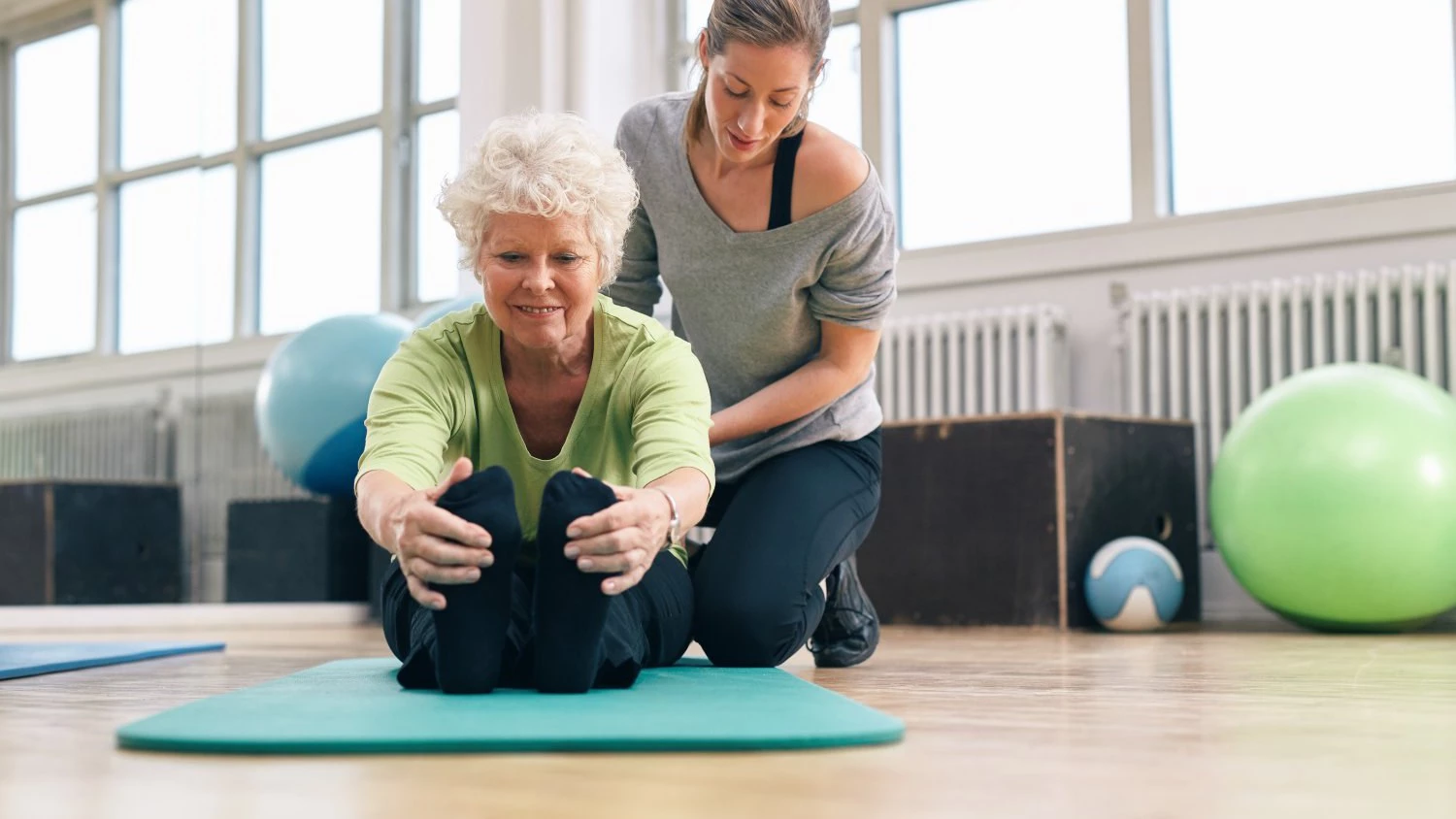How Exercise and Yoga Benefit Aging Brains

Mental exercise like doing cross words or playing card games can help to keep the brain young and prevent dementia, several studies say. However, it turns out that physical exercise may do more than mental exercise to preserve your memory function and keep your brain alert and clear as you get older. In other words, physical exercise is not just good for your body, it can do wonders for the brain as well.
The volume of the brain normally shrinks in late adulthood. Scientists don’t know why or how, but the loss of brain volume is correlated with memory loss, leading researchers to speculate that loss of brain volume may be a contributing factor to loss of cognitive functions as we get older. In addition, white matter brain lesions have been connected to a decline of clear thinking and memory.
Exercise may help slow or reverse these changes, however, according to a recent study published in Neurology. The study followed 700 people over the age of 73 in the U.K, who were not suffering from Alzheimer’s. The researchers set out to find out whether physical exercise and participation in leisure activities could improve cognitive functions and reduce brain atrophy.
The participants were given MRI’s to assess brain volume and the presence of white matter lesions at age 70 and again at 73. Those who reported exercising regularly had less brain shrinkage and less lesions. In contrast, those who had more social and leisure activities had the normal amount of brain atrophy, leading the researchers to believe that physical exercise may be more useful for brain health than mental activities.
Indeed, aerobic exercise may not only help maintain brain volume, but might even regenerate a shrinking brain. Another study, by researchers at University of Pittsburg Center for Aging, looked at the effects of aerobic exercise in older adults. In the study, 120 older adults without dementia symptoms were assigned to either a group that did a modest exercise routine, including walking, for 35 to 40 minutes three times a week. The other group was given stretching and non-aerobic exercises.
After the study period, all participants were tested by MRI. Researchers found that over one year, the hippocampus, the part of the brain involved with memory, had increased in volume in the aerobic exercisers.
“The old view is that as we get older our brains become less malleable and less able to change,” said one of the researchers, Dr. Kirk Erickson in an article in WebMD. “The new view is that it remains plastic even very late in life. We were able to show positive change after just one year of moderate-intensity physical activity.”
In short, it is never too late to start exercising. “It is a myth that frailty and mental decline are inevitable in old age,” said orthopedic surgeon Dr. Vonda Wright, who directs a performance program for older athletes in the same WebMD article. “It is never too late to harness our body’s capacity to get stronger and more functional… There is no pill that can do what exercise does.”
While none of the study looked at the effects of yoga, one might speculate that the variety and the many unique movements, which yoga postures expose the brain to, might well be an added benefit to keeping the brain challenged by new learning experiences, and hence more youthful.
For added benefits, be sure to include inversions suitable to your skill level, as inversions stimulate blood flow to the brain. In addition, at least 2-3 times a week, emphasize challenging postures or a faster, Vinyasa style practice to get your heart pumping and create added cardiovascular benefits in your yoga practice.
Sources:
Exercise Protects Aging Brains, Salynn Boyles
Neuroprotective lifestyles and the aging brain
Activity, atrophy, and white matter integrity



